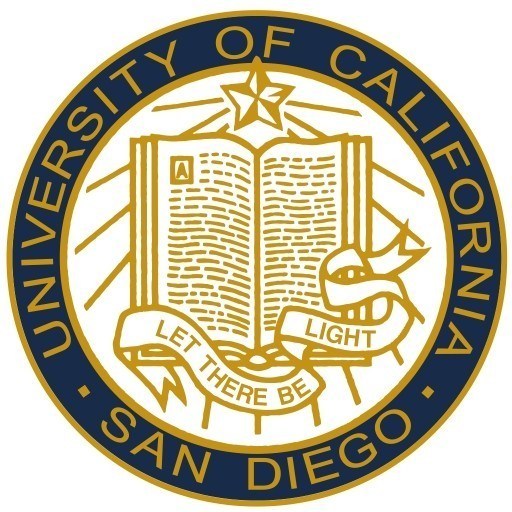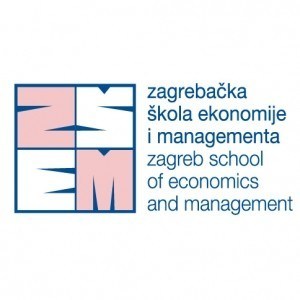Photos of university / #unioslo
The Bachelor's degree in Economics at the University of Oslo offers a comprehensive introduction to the fundamental principles of economic theory, analytical methods, and real-world applications. This programme is designed to provide students with a solid foundation in microeconomics, macroeconomics, quantitative methods, and the various sectors of the economy, preparing them for diverse career opportunities within the public and private sectors or further academic study. Throughout the three-year programme, students will explore key topics such as market dynamics, fiscal and monetary policies, international trade, and economic development, all within a global context. The curriculum emphasizes critical thinking, problem-solving skills, and the ability to analyze complex economic data. Students will engage with relevant case studies, numerical analysis, and policy debates, fostering an understanding of how economic principles influence societal and individual decision-making processes. The programme also includes optional elective courses, allowing students to tailor their studies to specific interests like environmental economics, behavioral economics, or financial markets. The faculty comprises experienced researchers and practitioners who bring cutting-edge insights and real-world perspectives into the classroom. In addition to classroom learning, students are encouraged to participate in internships, seminars, and research projects, promoting active engagement and practical experience. Graduates of the programme will be equipped with versatile skills applicable to careers in economic analysis, consulting, public administration, finance, and international organizations. The University of Oslo’s strong links with Norway’s economic environment and global institutions provide students with valuable networking opportunities. The Bachelor's in Economics at the University of Oslo stands out for its rigorous approach, innovative teaching methods, and commitment to fostering critical economic literacy in a changing world.
The Bachelor's degree programme in Economics at the University of Oslo provides students with a comprehensive understanding of how economic principles and analytical methods can be used to address real-world issues. Throughout the programme, students gain foundational knowledge in microeconomics, macroeconomics, and quantitative methods, enabling them to analyze economic phenomena at both individual and aggregate levels. The curriculum emphasizes critical thinking, data analysis, and the application of economic theories to contemporary challenges such as market failures, economic development, environmental sustainability, and globalization.
Students will engage with diverse topics including corporate finance, monetary policy, economic growth, labor markets, international trade, and economic policy analysis. The programme combines rigorous theoretical courses with practical skills in data collection, statistical modeling, and software tools, preparing graduates for careers in research, government, consulting, banking, or international organizations. The curriculum also offers opportunities for specialization through elective courses, allowing students to tailor their studies to particular interests within economics.
In addition to lectures and seminars, the programme encourages active participation in collaborative projects, case studies, and internships, fostering real-world experience and professional development. The university’s strong connections with industries, policymakers, and research institutions provide valuable networking opportunities. Students are supported by dedicated academic advisors and faculty members who are actively engaged in research and policy advising.
The programme emphasizes the importance of ethical considerations and social responsibility in economic decision-making. It prepares students not only to understand economic systems, but also to critically assess policies and propose sustainable solutions. Graduates will possess a solid analytical toolkit and a broad understanding of economic principles, equipping them to contribute effectively to solving the economic challenges of today and the future. The programme is designed for motivated individuals who wish to develop a deep understanding of economics and its applications in society.
Bachelor’s degree programme in Economics at the University of Oslo requires students to complete a total of 180 ECTS credits over three years. The curriculum is designed to provide a solid foundation in economic theory, quantitative methods, and applied economics, including courses in microeconomics, macroeconomics, statistics, and econometrics. Students are expected to undertake foundational courses in mathematics and statistics during their first year to support advanced economic analysis. In addition to compulsory courses, students have the opportunity to choose electives related to specialized areas such as development economics, environmental economics, international economics, and financial economics to tailor their studies to their interests and career plans. The programme emphasizes the development of analytical skills, critical thinking, and quantitative competence, preparing graduates for careers in research, public policy, private sector consultancy, and international organizations. To complete the degree, students must also engage in independent assignments and write a bachelor’s thesis that demonstrates their ability to conduct autonomous research on an economic topic, applying theories and methods learned during their coursework. Practical training, seminars, and group projects are integral parts of the curriculum, fostering teamwork and communication skills. The programme also encourages students to participate in internships and exchanges to gain real-world experience and intercultural competence. Throughout the programme, students are advised to consult academic advisors regularly to ensure they meet progression requirements and to select optional courses aligning with their academic and professional goals. The curriculum is regularly reviewed and updated to reflect recent developments in economic research and policy challenges, ensuring graduates are well-equipped with current knowledge and skills.
Want to improve your English level for admission?
Prepare for the program requirements with English Online by the British Council.
- ✔️ Flexible study schedule
- ✔️ Experienced teachers
- ✔️ Certificate upon completion
📘 Recommended for students with an IELTS level of 6.0 or below.
The University of Oslo offers various funding options for students enrolled in the Economics program. Tuition fees for international students are applicable, but are often subsidized by government grants and scholarships. Norwegian and EEA students typically pay no tuition fees due to government funding. Students can apply for scholarships through the university's scholarship program, which considers academic merit and financial need. Additionally, students may seek funding from external sources such as government student loans and grants, including the Norwegian State Educational Loan Fund (Lånekassen), which provides financial support for Norwegian citizens and residents studying abroad or at domestic institutions. Part-time work is also a common method for financing studies, with the university facilitating job opportunities on campus and in the local area. The university offers guidance and counseling on applying for financial aid, and there are specific grants available for research projects and international exchange programs associated with the Economics degree. It is recommended to plan finances early, considering living costs in Oslo, which can be high, including accommodation, transportation, and daily expenses. Students are encouraged to explore all available resources, including university scholarships, government aid, and external funding options to effectively finance their studies. The university also provides financial planning support to help students manage costs throughout their academic journey.
Economics at the University of Oslo is a comprehensive degree program designed to provide students with a solid foundation in economic theory, quantitative methods, and practical applications. The program prepares students for a variety of careers within the private sector, public administration, international organizations, and research institutions. The curriculum covers various core areas, including microeconomics, macroeconomics, econometrics, and applied economics, ensuring that students gain a well-rounded understanding of economic principles and their real-world implications. Students have the opportunity to specialize in areas such as environmental economics, development economics, financial economics, or international economics, allowing for tailored academic pursuits aligned with personal and career interests.
The program emphasizes analytical skills, critical thinking, and the ability to interpret complex data, which are essential for effective decision-making and policy analysis. Practical experience is encouraged through internships, projects, and collaborations with businesses and government agencies. The University of Oslo benefits from a strong research environment, with faculty members actively publishing in top international journals and contributing to policy debates, which enriches the learning experience for students. Additionally, the program integrates modern teaching methods, including case studies, group work, and seminars, to foster a dynamic educational environment. Graduates of the Economics program at the University of Oslo are equipped with the skills necessary for diverse career paths and are well-prepared to contribute to economic policy, research, and consulting roles globally.











